On Monday, March 22, the Water Institute, together with its graduate students association (SWIGS) hosted its annual World Water Day Celebration.
In the morning session, Sondus Jamal, co-chair of SWIGS, hosted an interactive workshop exploring our relationship with water.
Using the interactive platform Mentimeter, Sondus helped participants think about how water is important to their home and family life, their livelihood, their cultural practices, their wellbeing, and their local environment. Participants shared experiences and thoughts and reflected on what role they play in protecting this vital resource.
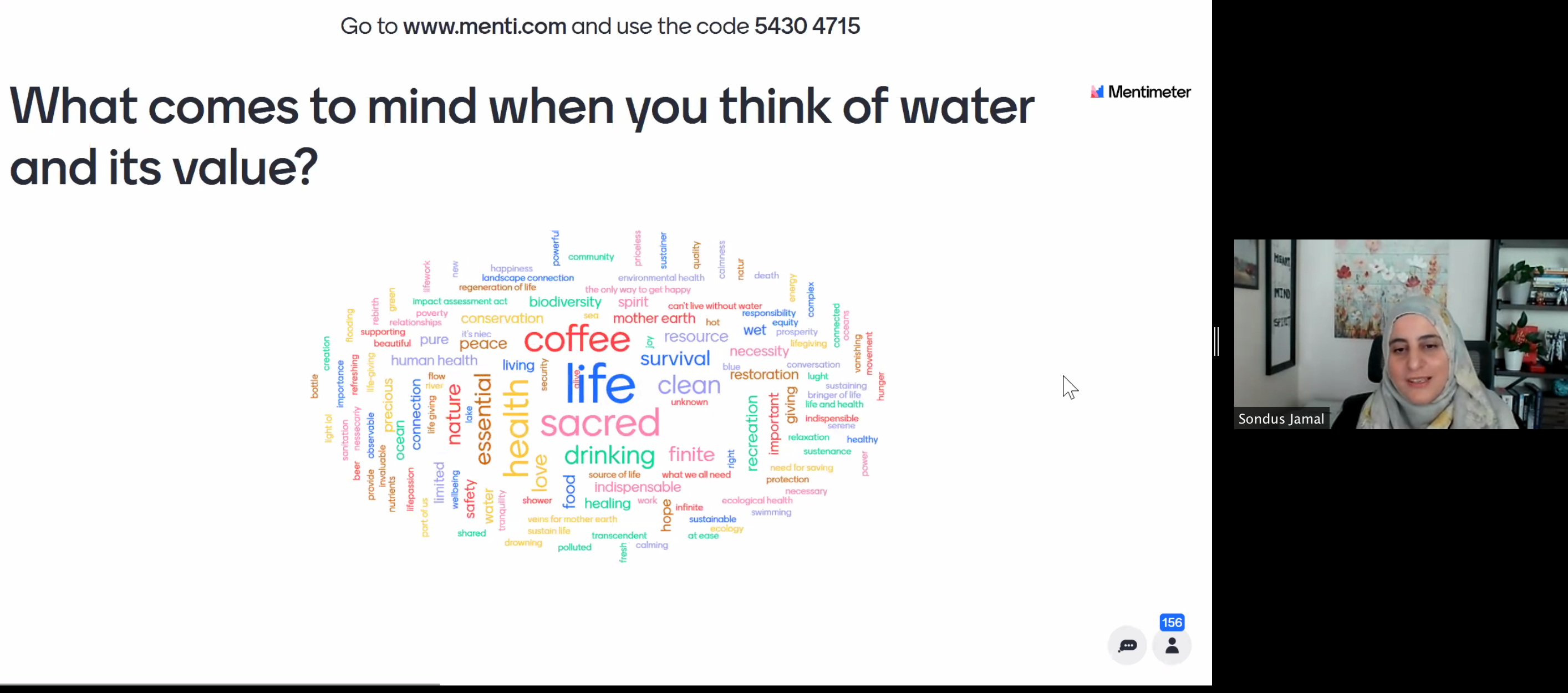
A word cloud from Mentimeter, populated by what participants said came to mind when they thought of water and its value.
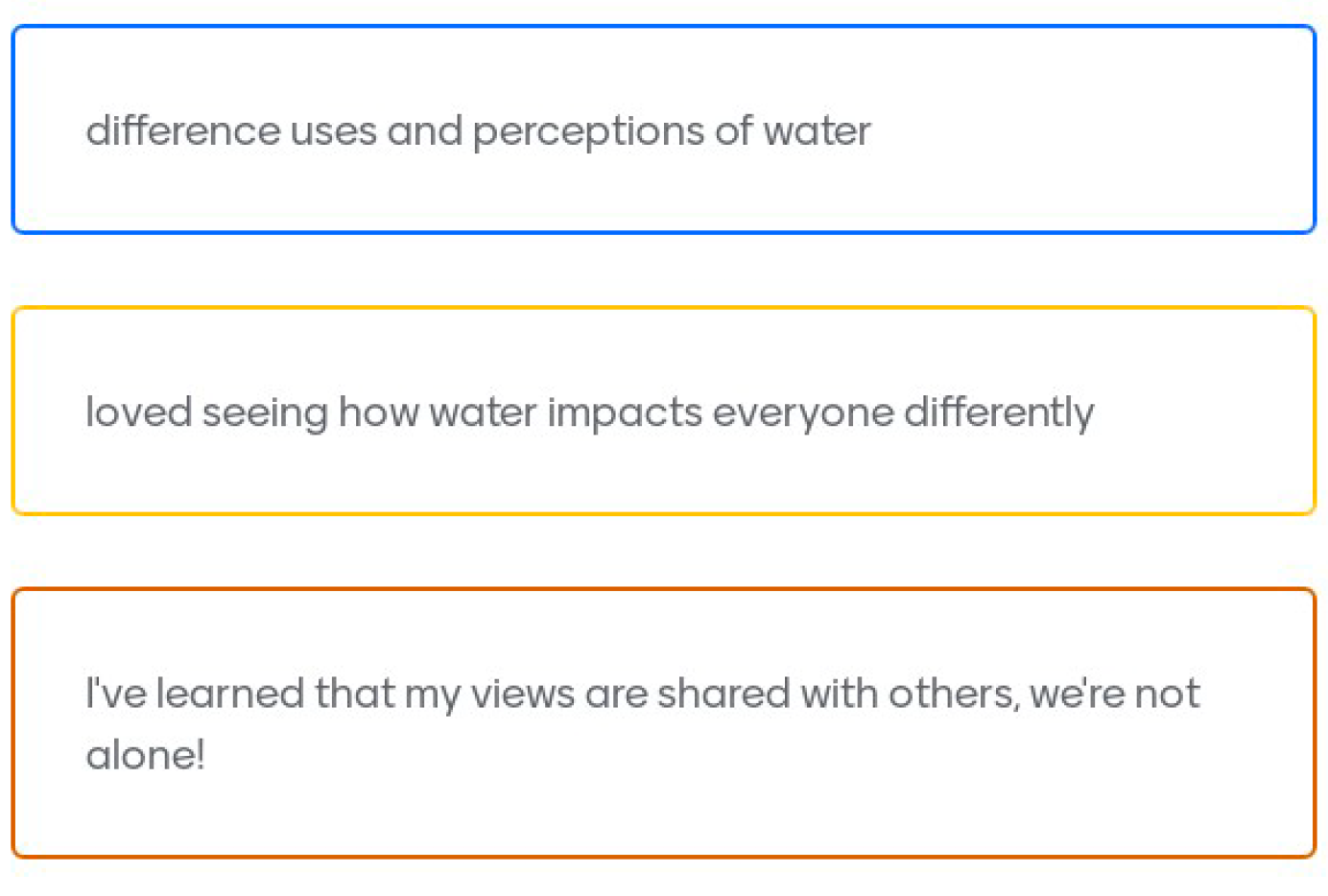
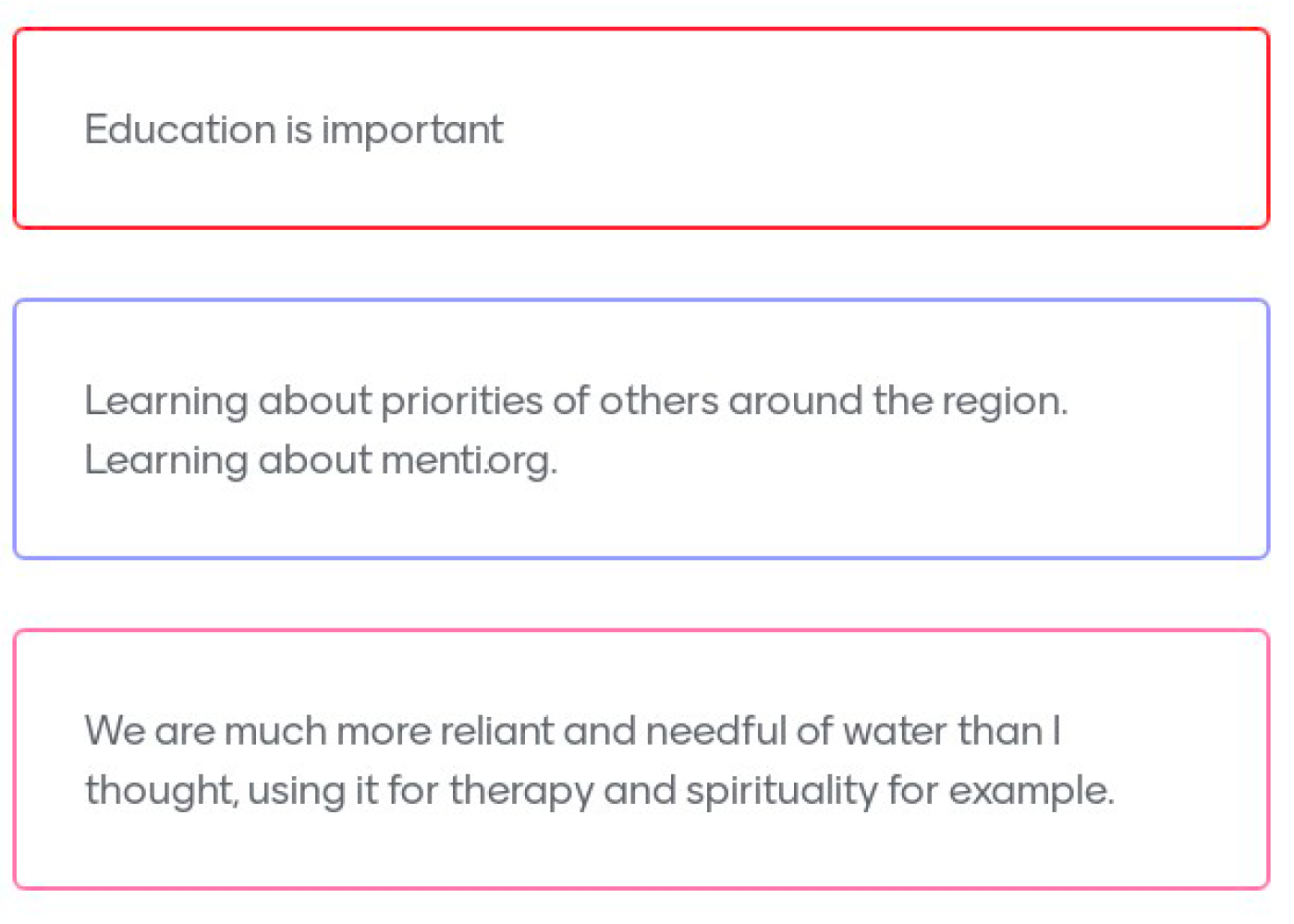
Participants share what they learned at the end of the Water2Me workshop hosted by Sondus.
After the workshop, Ogamauh annag qwe (Sue Chiblow) a PhD candidate at York University, then shared knowledge on Anishinaabek N’bi culture and learning that we are water, water is life, water has a spirit, water is medicine, and is the lifeblood of Mother Earth. She shared the Anishinaabek belief that everything starts with spirit, as reciprocity to our responsibility in our relationships with N’bi. The presentation contrasted the Anishinaabek worldview to the Western worldview, and explored women’s particular roles and responsibilities in water stewardship.
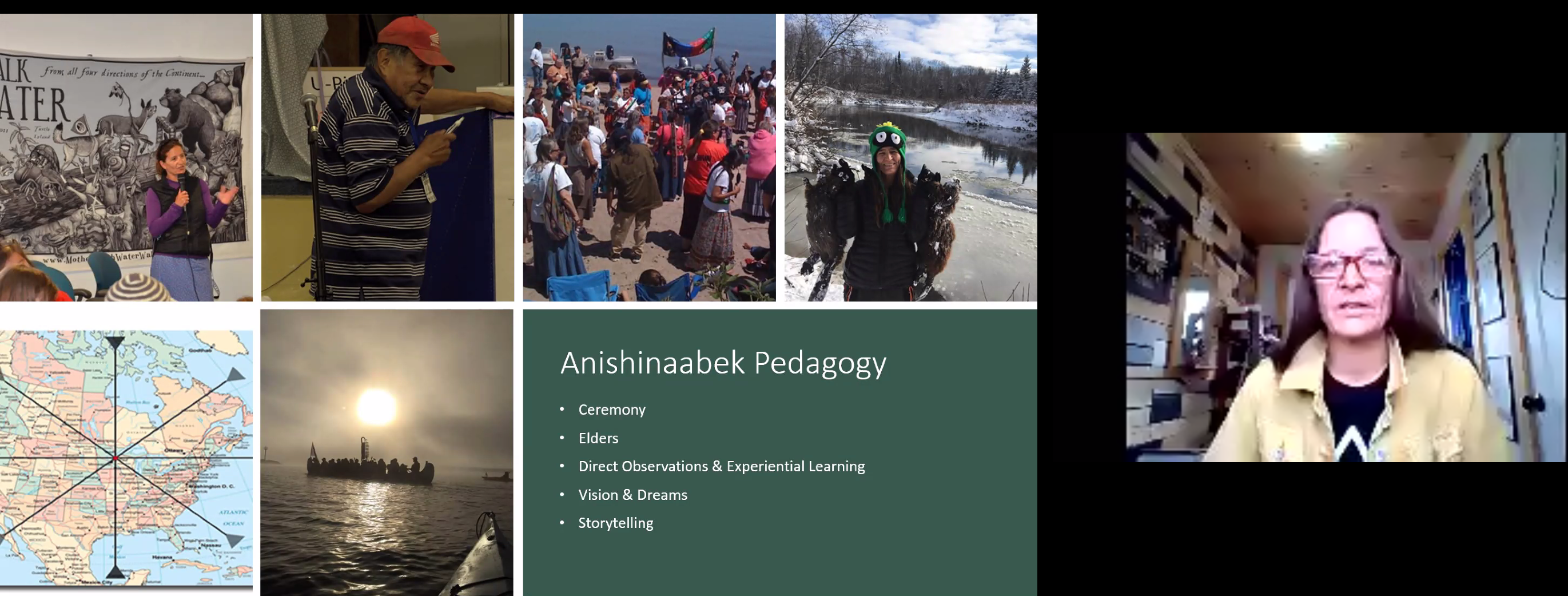
Sue Chiblow shares Anishinaabek N’bi pedagogies.
In the afternoon session, Dr. Ayana Elizabeth Johnson, marine biologist, policy expert, founder of Urban Ocean Lab, and co-host of the podcast How to Save a Planet, was featured in conversation with CTV News' Science and Technology Specialist Dan Riskin. Topics covered ranged from ocean conservation to science communication, to collective action, to environmental and social justice. Participants were challenged to identify specific roles that they could play in healing our planet.

Dan Riskin in conversation with Dr. Johnson.
Participants share their thoughts on Dr. Johnson's conversation below.
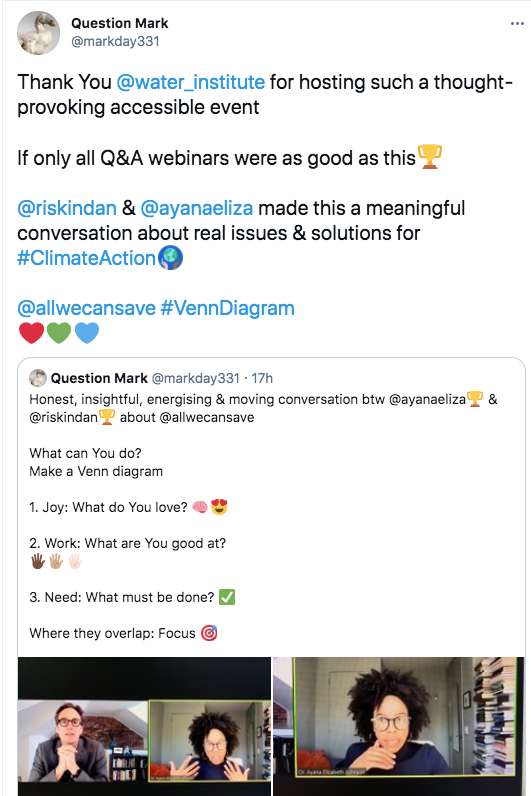
Thank you to the Water Institute and to Dr. Ayana Elizabeth Johnson for the insightful presentation. I will be sharing this with my "squad," a small group of people committed to spending 15 minutes a day to learn more about and advocate for clean water for Indigenous Peoples. The Venn Diagram is simple but gives us all a place to start.
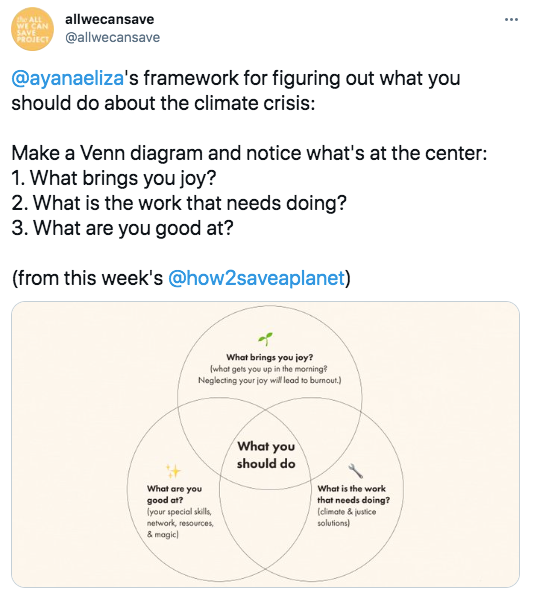
Dr. Johnson was inspiring. I made up PowerPoint slides with her book and her Venn diagram that I will be using in future teaching.
I am so encouraged by Dr. Ayana Elizabeth Johnson's strategies for improving the ways to be successful with our work. The words: truth, courage, and solutions are so motivating.
Special thanks to our 2021 World Water Day speakers, and the generous support from the RBC Foundation.